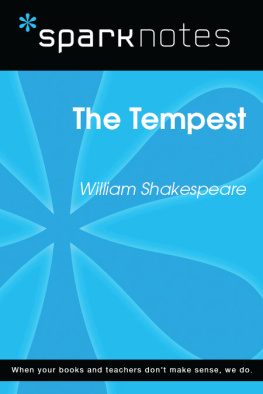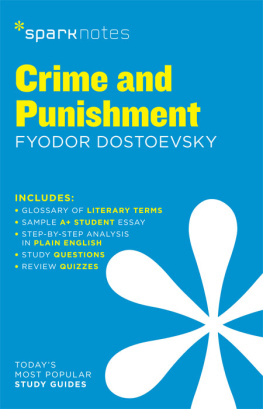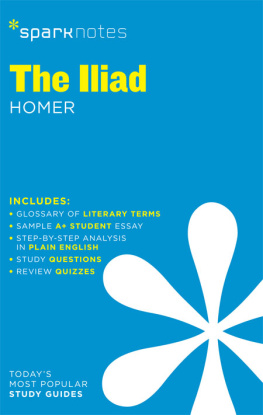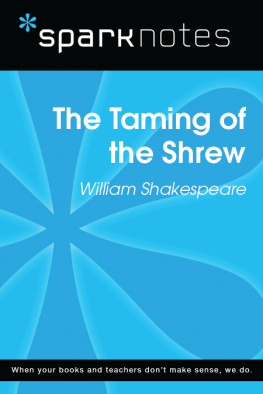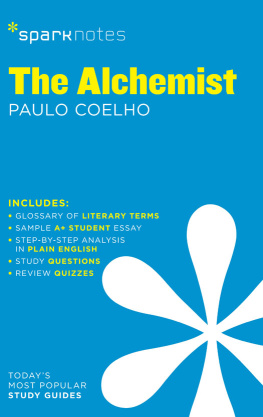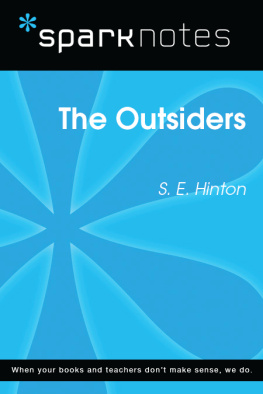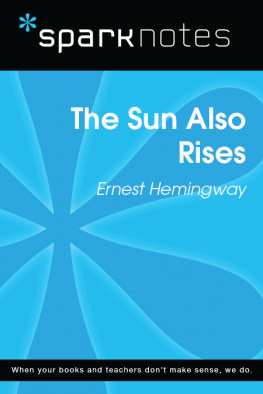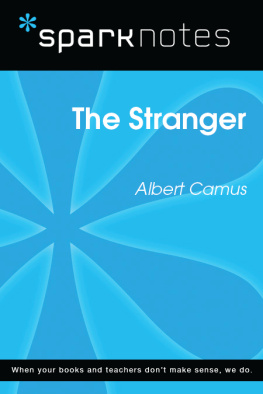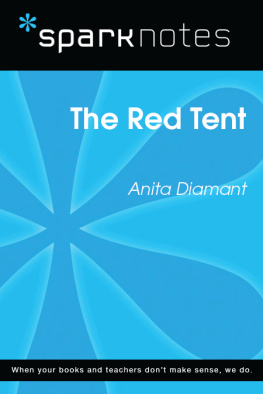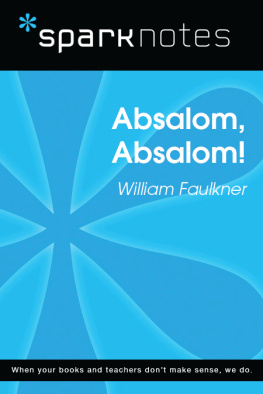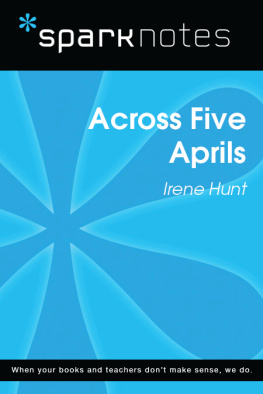SparkNotes - The Tempest
Here you can read online SparkNotes - The Tempest full text of the book (entire story) in english for free. Download pdf and epub, get meaning, cover and reviews about this ebook. year: 2014, publisher: Sterling Publishing Co., Inc., genre: Romance novel. Description of the work, (preface) as well as reviews are available. Best literature library LitArk.com created for fans of good reading and offers a wide selection of genres:
Romance novel
Science fiction
Adventure
Detective
Science
History
Home and family
Prose
Art
Politics
Computer
Non-fiction
Religion
Business
Children
Humor
Choose a favorite category and find really read worthwhile books. Enjoy immersion in the world of imagination, feel the emotions of the characters or learn something new for yourself, make an fascinating discovery.
- Book:The Tempest
- Author:
- Publisher:Sterling Publishing Co., Inc.
- Genre:
- Year:2014
- Rating:3 / 5
- Favourites:Add to favourites
- Your mark:
- 60
- 1
- 2
- 3
- 4
- 5
The Tempest: summary, description and annotation
We offer to read an annotation, description, summary or preface (depends on what the author of the book "The Tempest" wrote himself). If you haven't found the necessary information about the book — write in the comments, we will try to find it.
The Tempest — read online for free the complete book (whole text) full work
Below is the text of the book, divided by pages. System saving the place of the last page read, allows you to conveniently read the book "The Tempest" online for free, without having to search again every time where you left off. Put a bookmark, and you can go to the page where you finished reading at any time.
Font size:
Interval:
Bookmark:

2003, 2007 by Spark Publishing
This Spark Publishing edition 2014 by SparkNotes LLC, an Affiliate of Barnes & Noble
All rights reserved. No part of this publication may be reproduced, stored in a retrieval system, or transmitted in any form or by any means (including electronic, mechanical, photocopying, recording, or otherwise) without prior written permission from the publisher.
Sparknotes is a registered trademark of SparkNotes LLC
Spark Publishing
A Division of Barnes & Noble
120 Fifth Avenue
New York, NY 10011
www.sparknotes.com /
ISBN-13: 978-1-4114-7786-5
Please submit changes or report errors to www.sparknotes.com.
10 9 8 7 6 5 4 3 2 1
T he most influential writer in all of English literature, William Shakespeare was born in 1564 to a successful middle-class glove-maker in Stratford-upon-Avon, England. Shakespeare attended grammar school, but his formal education proceeded no further. In 1582 he married an older woman, Anne Hathaway, and had three children with her. Around 1590 he left his family behind and traveled to London to work as an actor and playwright. Public and critical acclaim quickly followed, and Shakespeare eventually became the most popular playwright in England and a part-owner of the Globe Theater. His career bridged the reigns of Elizabeth I (ruled 15581603 ) and James I (ruled 16031625 ), and he was a favorite of both monarchs. Indeed, James granted Shakespeares company the greatest possible compliment by bestowing upon its members the title of Kings Men. Wealthy and renowned, Shakespeare retired to Stratford and died in 1616 at the age of fifty-two. At the time of Shakespeares death, literary luminaries such as Ben Jonson hailed his works as timeless.
Shakespeares works were collected and printed in various editions in the century following his death, and by the early eighteenth century his reputation as the greatest poet ever to write in English was well established. The unprecedented admiration garnered by his works led to a fierce curiosity about Shakespeares life, but the dearth of biographical information has left many details of Shakespeares personal history shrouded in mystery. Some people have concluded from this fact and from Shakespeares modest education that Shakespeares plays were actually written by someone elseFrancis Bacon and the Earl of Oxford are the two most popular candidatesbut the support for this claim is overwhelmingly circumstantial, and the theory is not taken seriously by many scholars.
In the absence of credible evidence to the contrary, Shakespeare must be viewed as the author of the thirty-seven plays and sonnets that bear his name. The legacy of this body of work is immense. A number of Shakespeares plays seem to have transcended even the category of brilliance, becoming so influential as to affect profoundly the course of Western literature and culture ever after.
The Tempest probably was written in 16101611 , and was first performed at Court by the Kings Men in the fall of 1611. It was performed again in the winter of 16121613 during the festivities in celebration of the marriage of King Jamess daughter Elizabeth. The Tempest is most likely the last play written entirely by Shakespeare, and it is remarkable for being one of only two plays by Shakespeare (the other being Loves Labors Lost) whose plot is entirely original. The play does, however, draw on travel literature of its timemost notably the accounts of a tempest off the Bermudas that separated and nearly wrecked a fleet of colonial ships sailing from Plymouth to Virginia. The English colonial project seems to be on Shakespeares mind throughout The Tempest, as almost every character, from the lord Gonzalo to the drunk Stephano, ponders how he would rule the island on which the play is set if he were its king. Shakespeare seems also to have drawn on Montaignes essay Of the Cannibals, which was translated into English in 1603 . The name of Prosperos servant-monster, Caliban, seems to be an anagram or derivative of Cannibal.
The extraordinary flexibility of Shakespeares stage is given particular prominence in The Tempest. Stages of the Elizabethan and Jacobean period were for the most part bare and simple. There was little on-stage scenery, and the possibilities for artificial lighting were limited. The Kings Men in 1612 were performing both at the outdoor Globe Theatre and the indoor Blackfriars Theatre and their plays would have had to work in either venue. Therefore, much dramatic effect was left up to the minds of the audience. We see a particularly good example of this in The Tempest, Act II, scene i when Gonzalo, Sebastian, and Antonio argue whether the island is beautiful or barren. The bareness of the stage would have allowed either option to be possible in the audiences mind at any given moment.
At the same time, The Tempest includes stage directions for a number of elaborate special effects. The many pageants and songs accompanied by ornately costumed figures or stage-magicfor example, the banquet in Act III, scene iii, or the wedding celebration for Ferdinand and Miranda in Act IV, scene igive the play the feeling of a masque, a highly stylized form of dramatic, musical entertainment popular among the aristocracy of the sixteenth and seventeenth centuries. It is perhaps the tension between simple stage effects and very elaborate and surprising ones that gives the play its eerie and dreamlike quality, making it seem rich and complex even though it is one of Shakespeares shortest, most simply constructed plays.
It is tempting to think of The Tempest as Shakespeares farewell to the stage because of its theme of a great magician giving up his art. Indeed, we can interpret Prosperos reference to the dissolution of the great globe itself (IV.i.) as an allusion to Shakespeares theatre. However, Shakespeare is known to have collaborated on at least two other plays after The Tempest: The Two Noble Kinsmen and Henry VIII in 1613 , both probably written with John Fletcher. A performance of the latter was, in fact, the occasion for the actual dissolution of the Globe. A cannon fired during the performance accidentally ignited the thatch, and the theater burned to the ground.
A storm strikes a ship carrying Alonso, Ferdinand, Sebastian, Antonio, Gonzalo, Stephano, and Trinculo, who are on their way to Italy after coming from the wedding of Alonsos daughter, Claribel, to the prince of Tunis in Africa. The royal party and the other mariners, with the exception of the unflappable Boatswain, begin to fear for their lives. Lightning cracks, and the mariners cry that the ship has been hit. Everyone prepares to sink.
The next scene begins much more quietly. Miranda and Prospero stand on the shore of their island, looking out to sea at the recent shipwreck. Miranda asks her father to do anything he can to help the poor souls in the ship. Prospero assures her that everything is all right and then informs her that it is time she learned more about herself and her past. He reveals to her that he orchestrated the shipwreck and tells her the lengthy story of her past, a story he has often started to tell her before but never finished. The story goes that Prospero was the Duke of Milan until his brother Antonio, conspiring with Alonso, the King of Naples, usurped his position. Kidnapped and left to die on a raft at sea, Prospero and his daughter survive because Gonzalo leaves them supplies and Prosperos books, which are the source of his magic and power. Prospero and his daughter arrived on the island where they remain now and have been for twelve years. Only now, Prospero says, has Fortune at last sent his enemies his way, and he has raised the tempest in order to make things right with them once and for all.
Font size:
Interval:
Bookmark:
Similar books «The Tempest»
Look at similar books to The Tempest. We have selected literature similar in name and meaning in the hope of providing readers with more options to find new, interesting, not yet read works.
Discussion, reviews of the book The Tempest and just readers' own opinions. Leave your comments, write what you think about the work, its meaning or the main characters. Specify what exactly you liked and what you didn't like, and why you think so.

